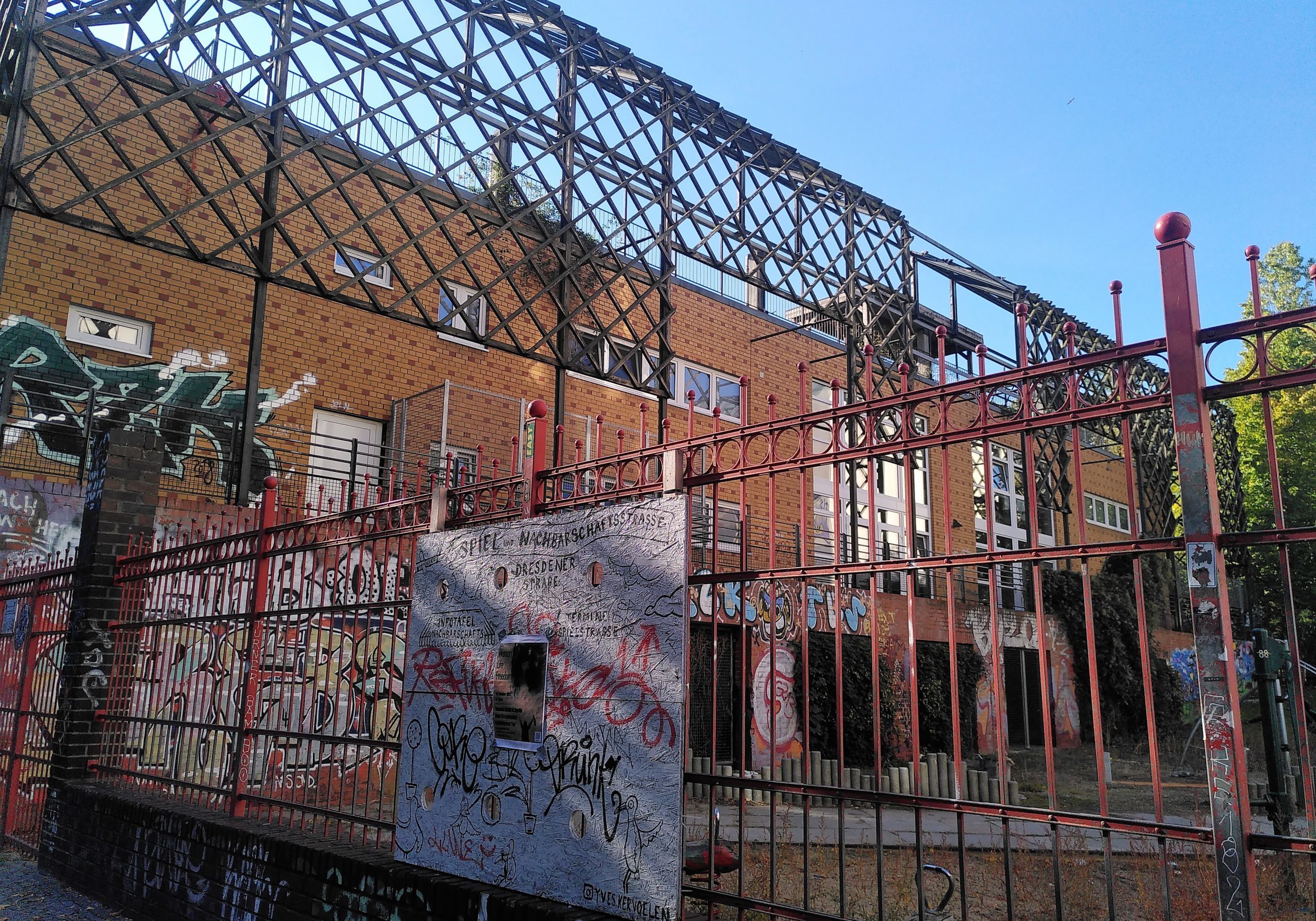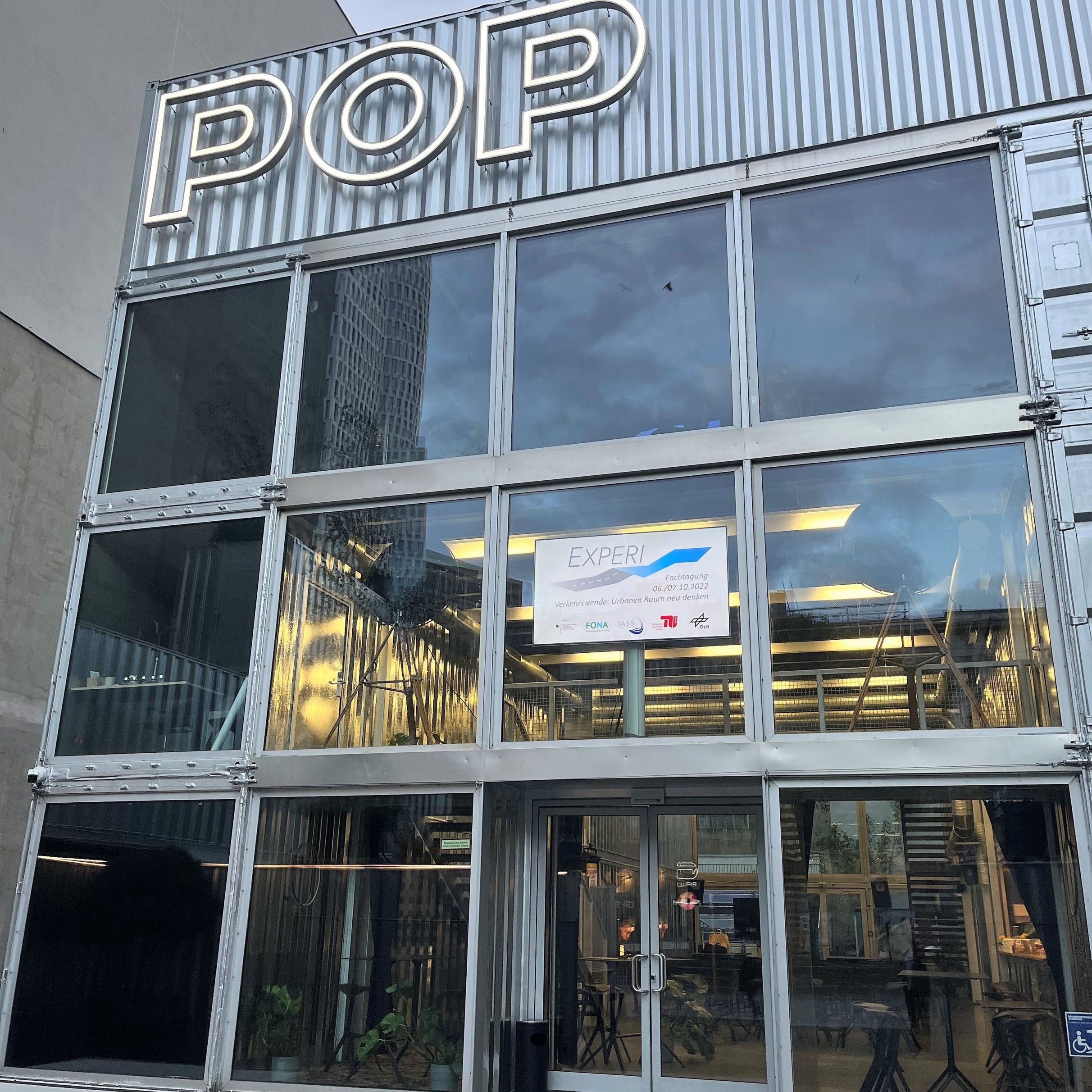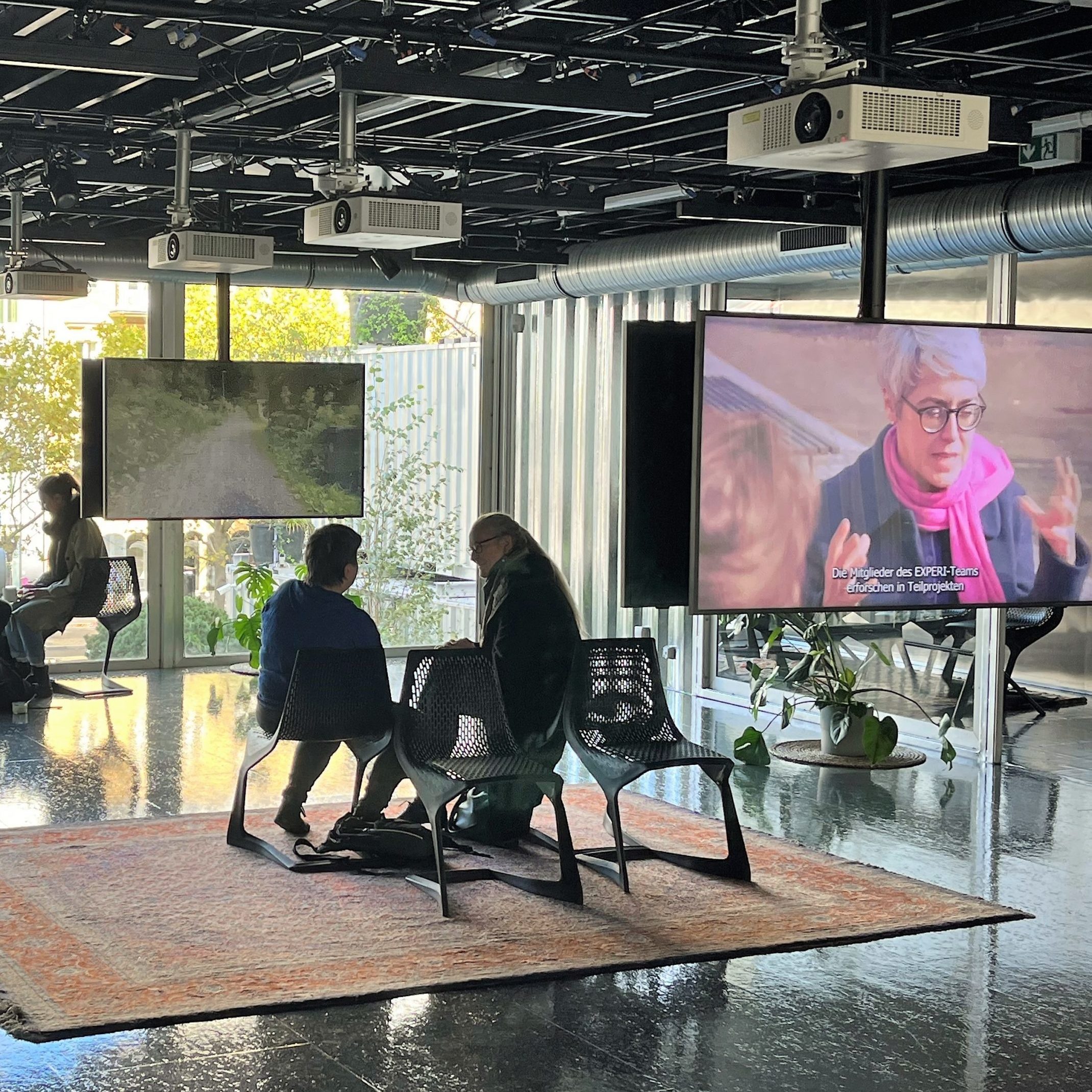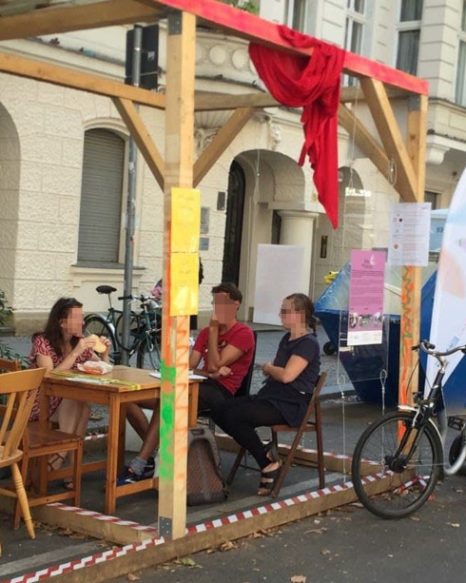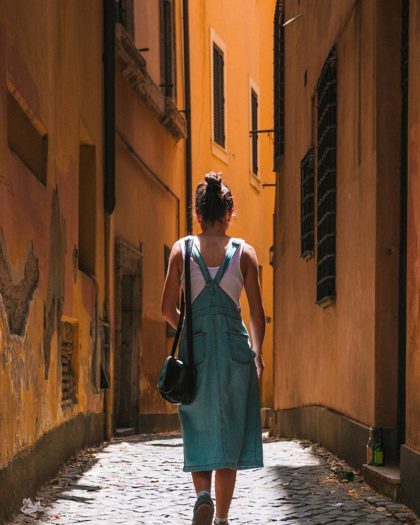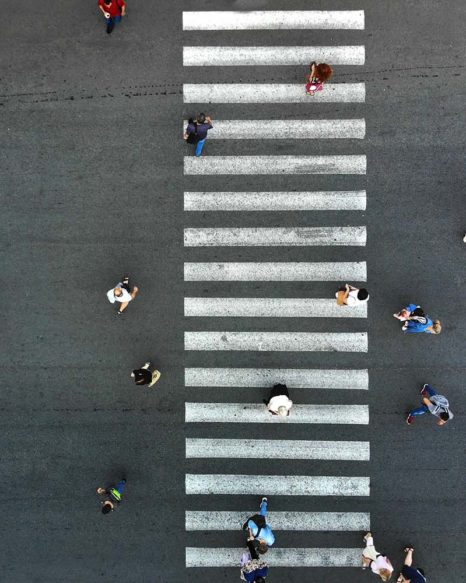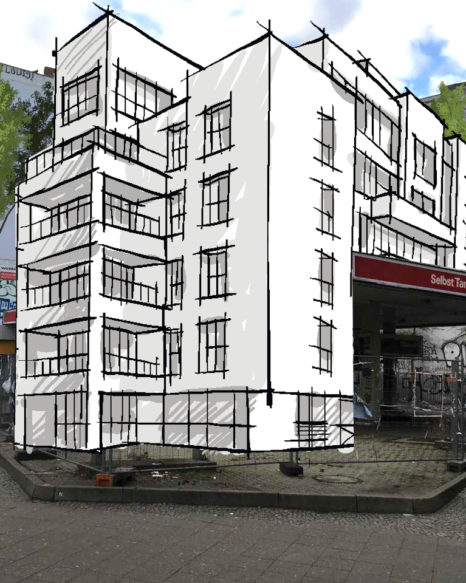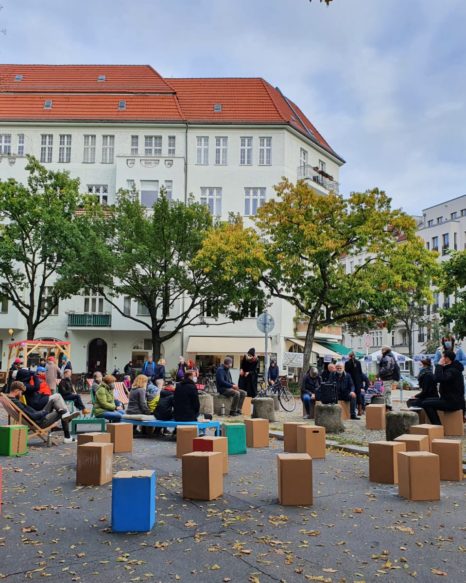06./07.10.2022: EXPERI symposium "Transport transition: Rethinking urban space"
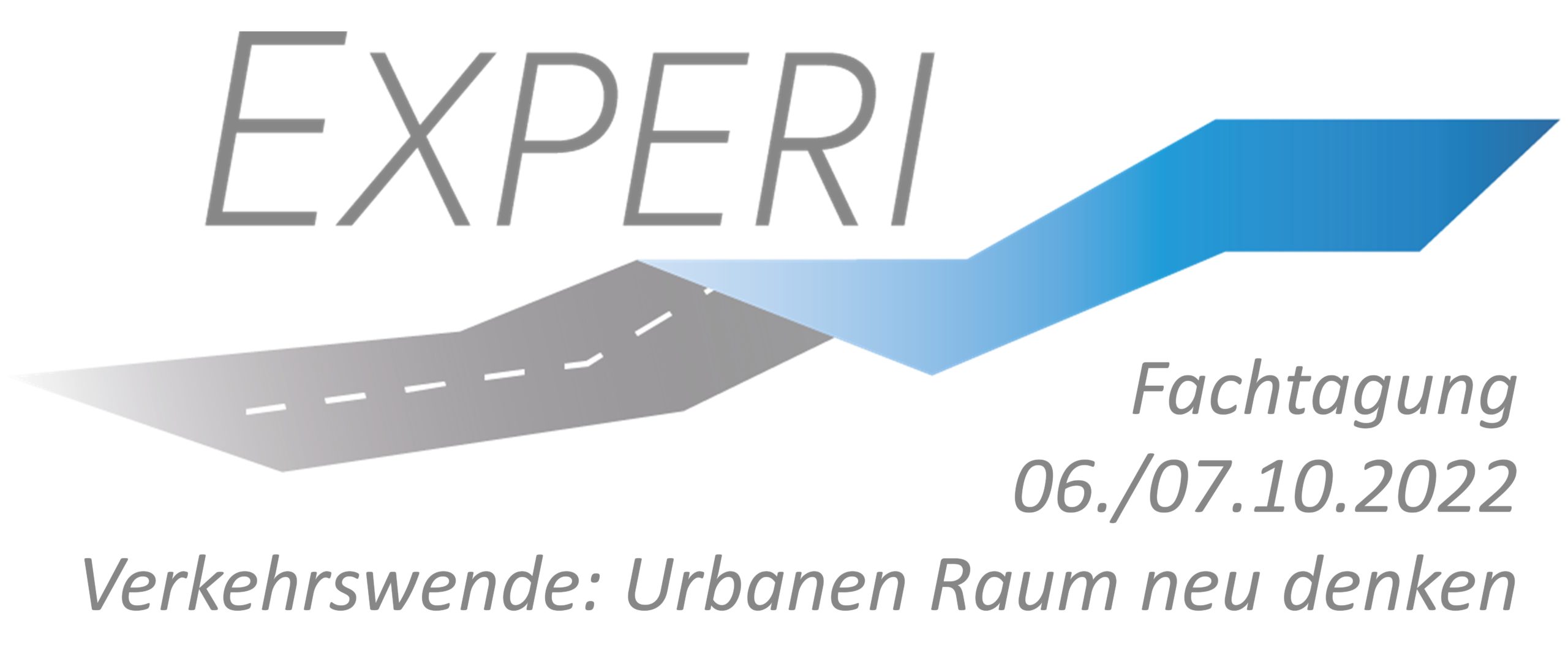
The interdisciplinary junior research group EXPERI invited stakeholders from research, administration, urban and mobility planning, civil society and business to present the interim results. Successfully implementing the transport transition also means rethinking and redistributing the scarce resource of public space. Therefore, we presented first research results around the topic of space distribution and redesign and were happy to discuss them together with you.
When: Thursday, 06.10.2022 | Friday, 07.10.2022
Where: POP KUDAMM - Place of Participation, Kurfürstendamm 229, 10719 Berlin
In addition to the presentation of the research results, there was a keynote speech on the Berlin Mobility Act, further interface results from the DLR research project "Networked Mobility for Liveable Places" (VMo4Orte) as well as excursions to three places of the transport transformation in Berlin.
Program review:
Thursday, 06.10.2022
Moderation:
10:00
Opening
Dr Julia Jarass, EXPERI / German Aerospace Centre (DLR) Institute of Transport Research
10:10
Keynote speech: Berlin Mobility Act
Prof. Dr Sophia Becker, Mobility Researcher / Vice President for Sustainability, Internal Communication, Transfer and Transdisciplinarity at the Technische Universität Berlin
10:30 - 11:30
Session 1: Justice in the mobility transition
Theoretical scientific but also public discourses about the unjust status quo of mobility are increasing. This session will focus on developing a comprehensive understanding of justice in mobility. This understanding will not only deal with the question of which aspects influence the distribution of mobility in which way, but also with the question of participation as a mechanism to make injustices visible and addressable. How does the Berlin mobility transition involve participation? Together, we will then consider what insights we can take away for the planning and implementation of the mobility transition.
- Lecture: Justice in the mobility transition – distribution and participation issues of the (Berlin) mobility transition | Anke Kläver, EXPERI / Institute for Transformative Sustainability Research in Potsdam (IASS) and Victoria Luh, Institute for Transformative Sustainability Research in Potsdam (IASS)
11:30 - 11:50
Introduction: Visual Utopias
Jan Kamensky: "(...) I'm convinced that it's important to see what happens if we transform car-dominated streets into human-friendly places. My utopian animations present visual arguments for change. (...)"
11:50 - 13:30
Lunch break & visit of the exhibition with visualisations "Visual Utopias" by Jan Kamensky
13:30 - 15:00
Session 2: Streets become squares & neighbourhood blocks - insights from the (temporary) redesign
This session is about the transformation of street space into liveable places. We will explore the question of how these changes in the form of real world experiments are perceived and accepted by the population and what the implications are for the actors involved from research, administration and civil society. Within the concept of EXPERI, three (temporary) redesigns in three Berlin districts were researched and partly initiated. This leads to visible changes in the infrastructure, which among other things presuppose (behavioural) changes by previously privileged road users and can lead to reactance. The question therefore arises as to how a profound acceptance can be created in the Berlin population. This will be examined, among other things, on the basis of psychological factors and will consider the role of emotions in the context of the transport transition and how they should be dealt with. The effects of the redesigns on noise and traffic flow are being investigated as part of the DLR project VMo4Orte - Networked Mobility for Liveable Places. The findings collected will be presented in this session.
- Lecture: The transport transition under a burning glass - experiences from three (temporary) redesigns in Berlin | Dr Julia Jarass, EXPERI / German Aerospace Centre (DLR) Institute of Transport Research
- Lecture: Acceptance of neighbourhood blocks - What role do emotions and perceived fairness play? Katharina Götting | EXPERI / Institute for Transformative Sustainability Research in Potsdam (IASS)
- Lecture: How do we design liveable places? Model-driven determination of effects of urban redesign measures: VMo4Orte - Networked Mobility for Liveable Places | Dr Julia Schuppan & Dr Simon Nieland / German Aerospace Centre (DLR) Institute of Transport Research | DLR Institute of Transport Research
15:00 - 15:30
Coffee break
15:30 - 16:30
Panel/fishbowl discussion: Transferability into practice
With representatives of a.o. the Berlin districts and together with the audience, we will discuss the benefits of the findings on land redistribution in practice and what adjustments can be made.
- Saskia Ellenbeck, District Councilor for Order, Roads, Green Spaces, Environment and Nature Conservation | District office Tempelhof-Schöneberg
- Kirsten Pfaue, coordinator for the mobility transition of the city of Hamburg
- Oliver Schruoffeneger, district councilor for order, environment, roads and green spaces | District Office Charlottenburg-Wilmersdorf
- Felix Weisbrich, Head of the Roads and Parks Office | District Office Friedrichshain-Kreuzberg
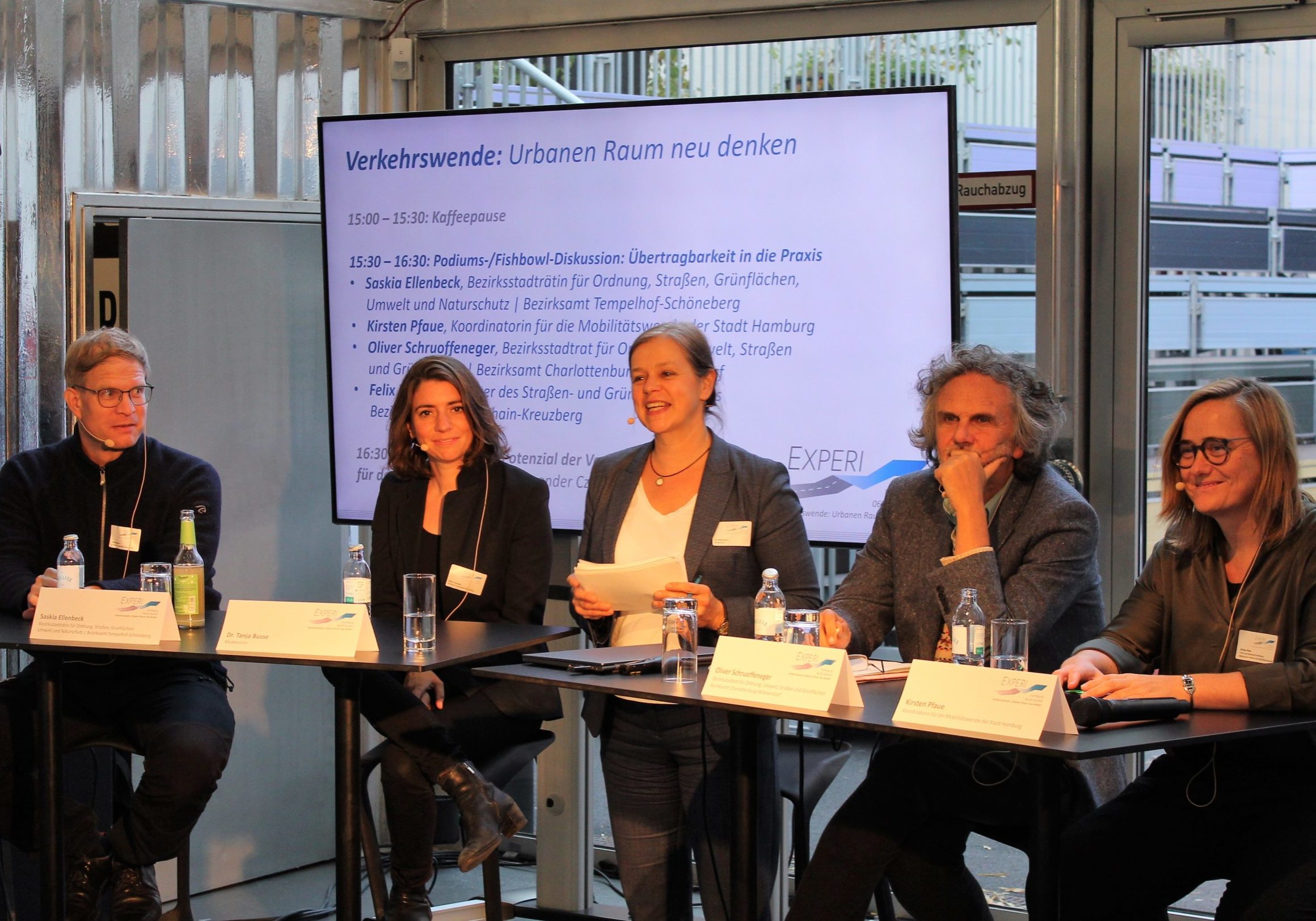
16:30 - 17:00
Session 3: Potential of the transport transition for the housing market
Numerous studies study the distribution of street space and call for the redistribution of public space on the basis of the current distribution of space. Neighbourhood blocks are being created, bicycle streets are being built, and districts are planning the traffic calming of entire neighbourhoods. But how might the shift towards climate-neutral cities affect the distribution of space outside the streets? How much space is taken up by car infrastructure outside the street space, e.g. by petrol stations, car rentals, car parks, garages and car dealerships - and how much potential does the transport transition create for more houses for people instead of cars? In this session, we will look at the current land use of the off-street automobile infrastructure and the land potentials that the transport transition creates, using Berlin as an example. Based on best practices, we will look at how land conversion from car infrastructure to alternative uses has already been implemented and discuss possible levers to leverage the potentials of the transport transition for the housing market.
- Presentation: Study results status-quo-analysis land consumption "off-street automobile infrastructure Berlin" | Alexander Czeh, EXPERI / German Aerospace Centre (DLR) Institute of Transport Research
17:00 - 17:15
Conclusion
Dr Julia Jarass, EXPERI / German Aerospace Centre (DLR) Institute of Transport Research
17:15
Get together & Fade out
Friday, 07.10.2022
Excursion programme
10:00 - 11:30
EXPERI Real world experiment: city square Charlottenburg
This excursion will visit the city square (Stadtplatz) in Charlottenburg. Here, the EXPERI research group transformed the intersection into a city square for one month in autumn 2020. It will be explained how the legal traffic regulations were met, what special features had to be taken into account, how the area was used and how the change was accepted by the residents and businesses. After controversial and emotional discussions, part of the area has now been permanently redesigned as a town square. During a workshop with residents and the Prinzessinnengärten collective in summer 2021, ideas were developed that can now be viewed on site: Raised flower beds, seating and greenery invite you to linger. The excursion shows how the transport transition can be implemented on a small scale and what potentials arise.
Meeting point: Horstweg 1, 14059 Berlin
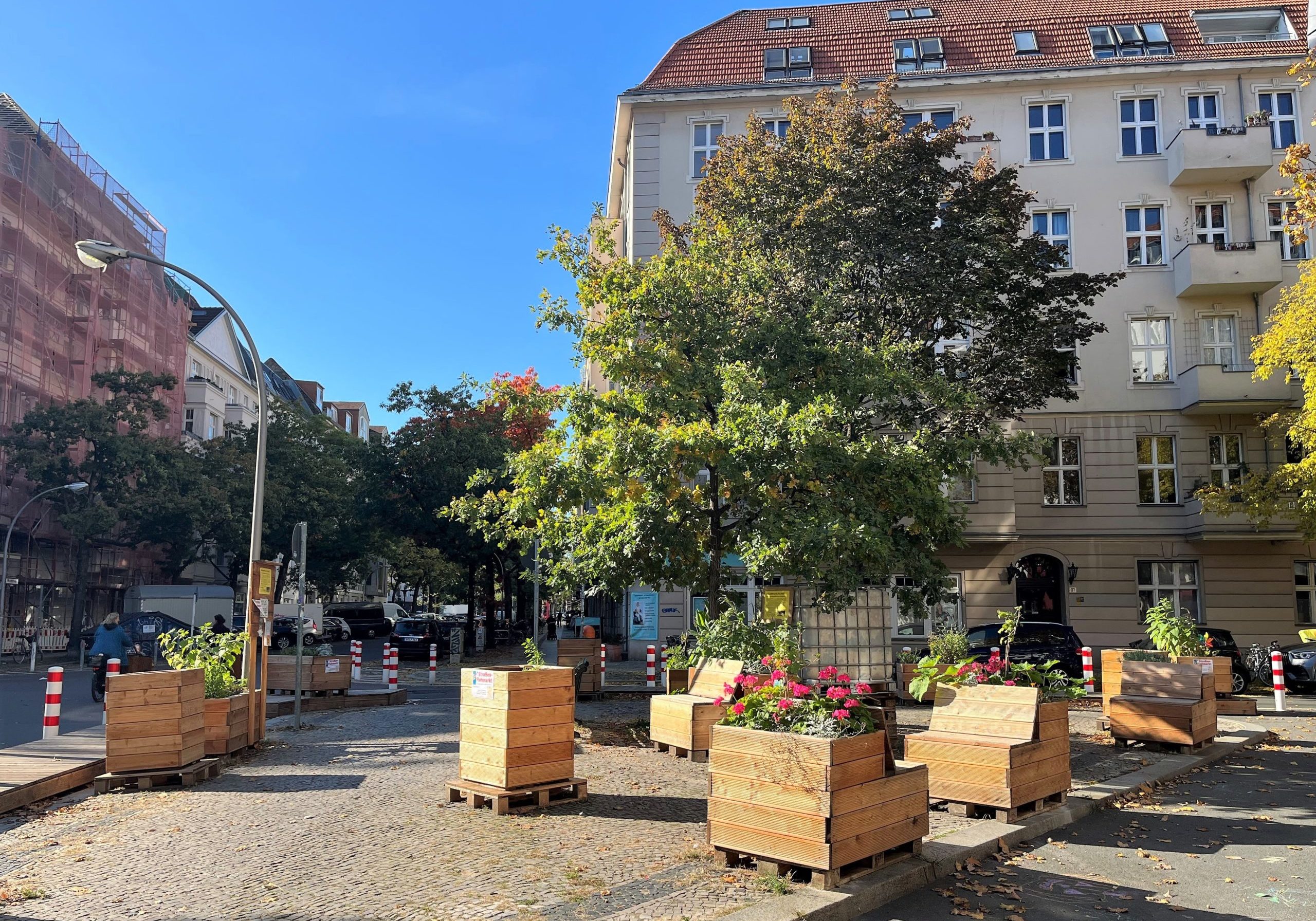
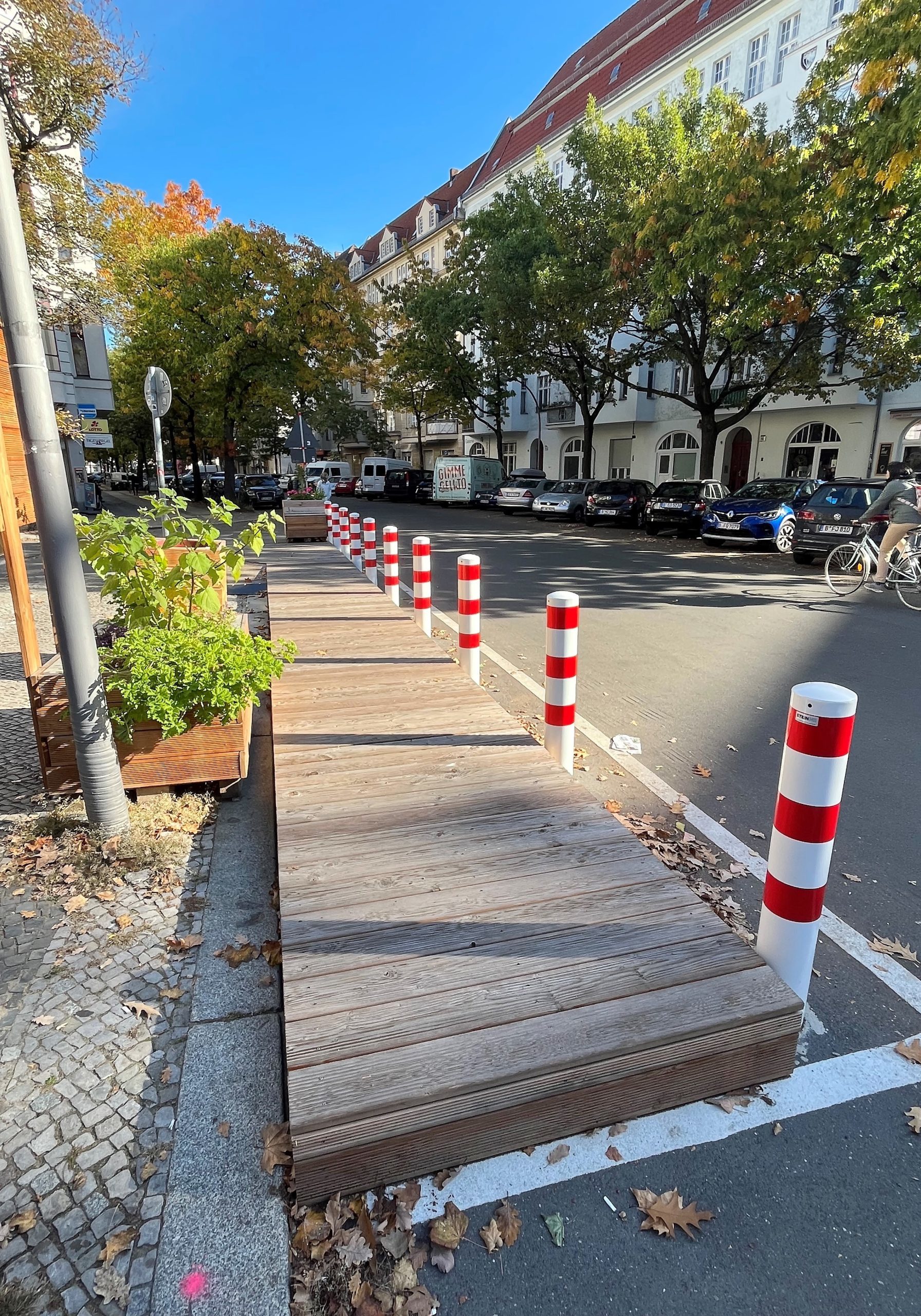
10:00 - 11:30
Fußgänger*innenzone Lausitzer Platz
Der „Lausi“, wie der Lausitzer Platz von den Berliner*innen liebevoll genannt wird, ist ein Stadtplatz im nördlichen Ortsteil Kreuzbergs. Er liegt unmittelbar oberhalb der Skalitzer Straße am Görlitzer Park. Der Platz hat eine lange Geschichte. Seit Ende 2020, wird der Platz und seine umliegenden Straßen jetzt unter Beteiligungsverfahren zu einer Fußgänger*innenzone umgestaltet. Ziel der Fußgänger*innenzone ist es unter anderem die Aufenthaltsqualität im öffentlichen Raum zu erhöhen und die Verkehrssicherheit auf den Straßen zu maximieren, sodass beispielsweise Kinder sicher zur Schule kommen. Doch die mit dem Umgestaltungsprozess verbundenen Veränderungen insbesondere auf alltäglicher Ebene, lösen unterschiedlichste emotionale Reaktionen aus. Teils kommt es zu Konflikten. In dieser Exkursion wollen wir uns mit Expert*innen genauer anschauen, wie die Umgestaltung wahrgenommen wird, welche partizipativen Elemente am Lausi durchgeführt wurden und was wir aus dem Realexperiment für weitere partizipative Formate der Mobilitätswende mitnehmen können.
Meeting point: In front of the restaurant Baraka, Lausitzer Platz 6, 10997 Berlin
10:00 - 11:30
Kindergarten in a former multi-storey car park
Bei der Kindertagesstätte Dresdener Straße handelt es sich um den Umbau eines Parkhauses in eine Kita mit 136 Krippenplätzen. Das Parkhaus, welches 1971-74 errichtet wurde, wurde im Rahmen der internationalen Bauaustellung von 1984-87 so umgebaut, dass 4 Halbgeschosse und der Dachgarten von der Kita genutzt werden können. Damit bietet dieser Ort ein spannendes Beispiel für die Potenziale der Verkehrswende für die Umnutzung von Flächen früherer Pkw-Infrastruktur. Während der Führung erfahren wir zum Beispiel, wie bereits in den 80er Jahren architektonische Kniffe angewandt wurden, um das Gebäude auch ohne Abriss und somit klimaschonend zu einem Ort mit hoher Aufenthaltsqualität und geringem Energieverbrauch zu entwickeln.
Meeting point: Dresdener Str. 128, 10999 Berlin
